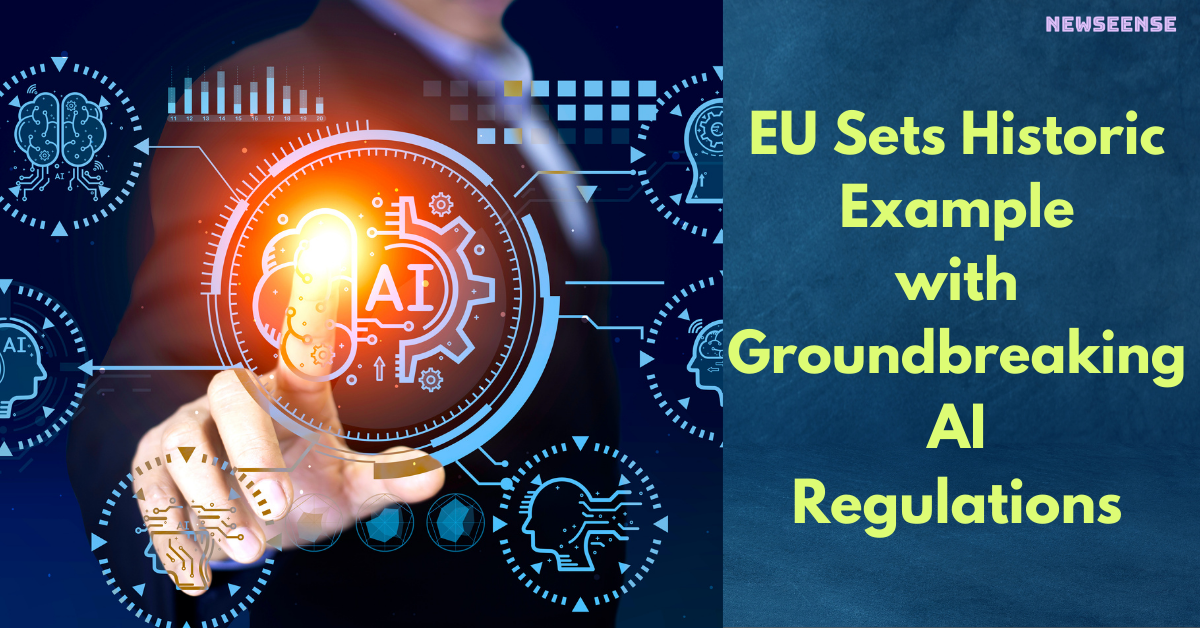
For the first time ever, the EU became the pioneer in AI regulations by introducing global law on the use of AI. After 37 hours of an intense negotiation among the European Parliament and the member states of the European Union, a tentative agreement was announced towards the end, constituting a notable turning point on the international arena related to regulation of artificial intelligence (AI).
Table of Contents
The Deal in a Nutshell
The agreement was celebrated by the European commissioner, Thierry Breton who declared that the European union will be the first continent to have clear rules guiding usage of AI. AI Act expected for a vote in EU parliament in early 2024. Will become law in 2025. The EU’s legislative framework includes key safeguards and restrictions:
Guardrails on Adoption: Strict laws related to the application of AI in police services involving self-regulated, informed clients that can sue for any suspected infringements.
Facial Recognition Technology: Restriction of mass deployment with certain exceptions in favor of preserving individuals’ right to privacy.

Behavioral Control: Ban of AI applications for behavior modification, based on ethics.
Penalties: Ensuring tough penalties are enacted against such companies to enhance accountability.
The Framework Unveiled
The EU’s legal framework categorizes AI applications into four risk classes:
Largely Banned: En masse implementation of facial recognition (except for the police) as well as artificial intelligence targeted at the regulation of behavior.
High Risk: Certification of conditional allowance with applications such as AI tools in self-driving cars for transparency and full accountability.
Medium Risk: Restricted Deployment for Applications such as Generative AI Chatbots with Detailed Documentation and User Awareness.
A Launch Pad for Innovation
European leaders foresee the regulation as more than just an edict where according to the commissioner Breton AI Act will serve as a “Take off for EU Startup and research”. In addition Commission president Ursula von de Leyen indicates that the main objective of the Act is development of Trust.
Global Perspectives on AI Regulation
This approach differs from that of any other global competitor, the EU’s lead being decisive in tech regulation. In addition, the US, UK, and China are also fighting for the AI regulation leadership through various approaches. The EU has demonstrated in the past the GDPR and other subsequent legislations on data protection which have placed it at a level of authority in global tech governance.
India’s Sovereign AI Ambitions
In a situation whereby world fights for self-regulating AI, India remains firm in defending national AI. It provides detail about India’s move towards DPI, employing AI in health, agrarian, governmental, translating languages, etc.
The Road Ahead
The world is monitoring how the EU legislation that will set a benchmark for artificial intelligence development across the globe. The consequences of this on technology development, privacy concerns and moral issues will be felt globally as the European Parliament votes on this new law and the rest of the world watches this unfold.